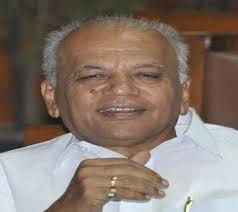
"We are sending project reports to the central government for approval to set up two more EMCs at Peenya in Bangalore and Mysore, as we are committed to take the Electronic System Design and Manufacturing (ESDM) to other locations in the state," Patil said at a chip industry meet here.
The central government Jan 30 cleared the state's proposal to set up the first brownfield EMC at Electronic City in south Bangalore at a cost of Rs.85 crore, with the central government contributing Rs.50 crore, the state Rs.19 crore and industry Rs.16 crore.
"To attract investments in the sector, the state will provide 10 percent or Rs.5 crore as capital subsidy to ESDM firms and reimburse 20 percent of the R&D expense they incur or account for two percent (Rs.1 crore) of their annual turnover," Patil said at the ninth Vision Summit of the India Electronics and Semiconductor Association (IESA).
Asserting that Karnataka was the first in the country to frame a holistic policy on ESDM last year, with a view to making the state a preferred destination for investments, Patil said the aim was to create 240,000 jobs and achieve 20 percent of the country's total export target of $80 billion by 2020.
"We are preparing a ground for setting up of ESDM clusters in brownfield and greenfield across the state," he claimed.
The state government will also reimburse 50 percent of the cost incurred by ESDM firms in international marketing and sales promotion to boost their products and build the state's brand equity the world over.
In this context, the minister disclosed that eight ESDM firms had registered with the IT department to avail the various incentives and concessions under the new policy.
Similarly, as the state government is keen to make Karnataka a leader in the Intellectual Property Rights (IPR) and knowledge economy, it will reimburse 75 percent of payment after the patent is filed and 25 percent after it is granted.
"We will also reimburse 50 percent of the cost, including fee for filing, attorney, search and maintenance up to Rs. 5 lakh for an international patent and up to Rs.1 lakh for a domestic patent," Patil told about 650 delegates participating in the two-day event of the premier industrial body of electronics' goods manufacturers.
Noting that high-value-added products required IPR protection in the form of patents in the country and overseas, the minister said the state government had set a target of filing at least 3,000 domestic and 2,000 international patents of ESDM by 2020.
"Under the new policy, preference is given to state-based ESDM firms in government procurement of electronic products," Patil noted.
Lamenting that the country was heavily dependent on imported electronic goods, he said as a result, the import bill for such goods crossed $30 billion in last fiscal (2012-13) and India was conspicuously absent in the global electronic hardware arena.
"The import bill for electronics goods will increase to $42 billion in ensuing fiscal if don't boost their domestic manufacturing. I have no hesitation to say we must learn lessons from smaller countries like Israel, South Korea and Taiwan on this count," Patil observed.







Comments
Add new comment